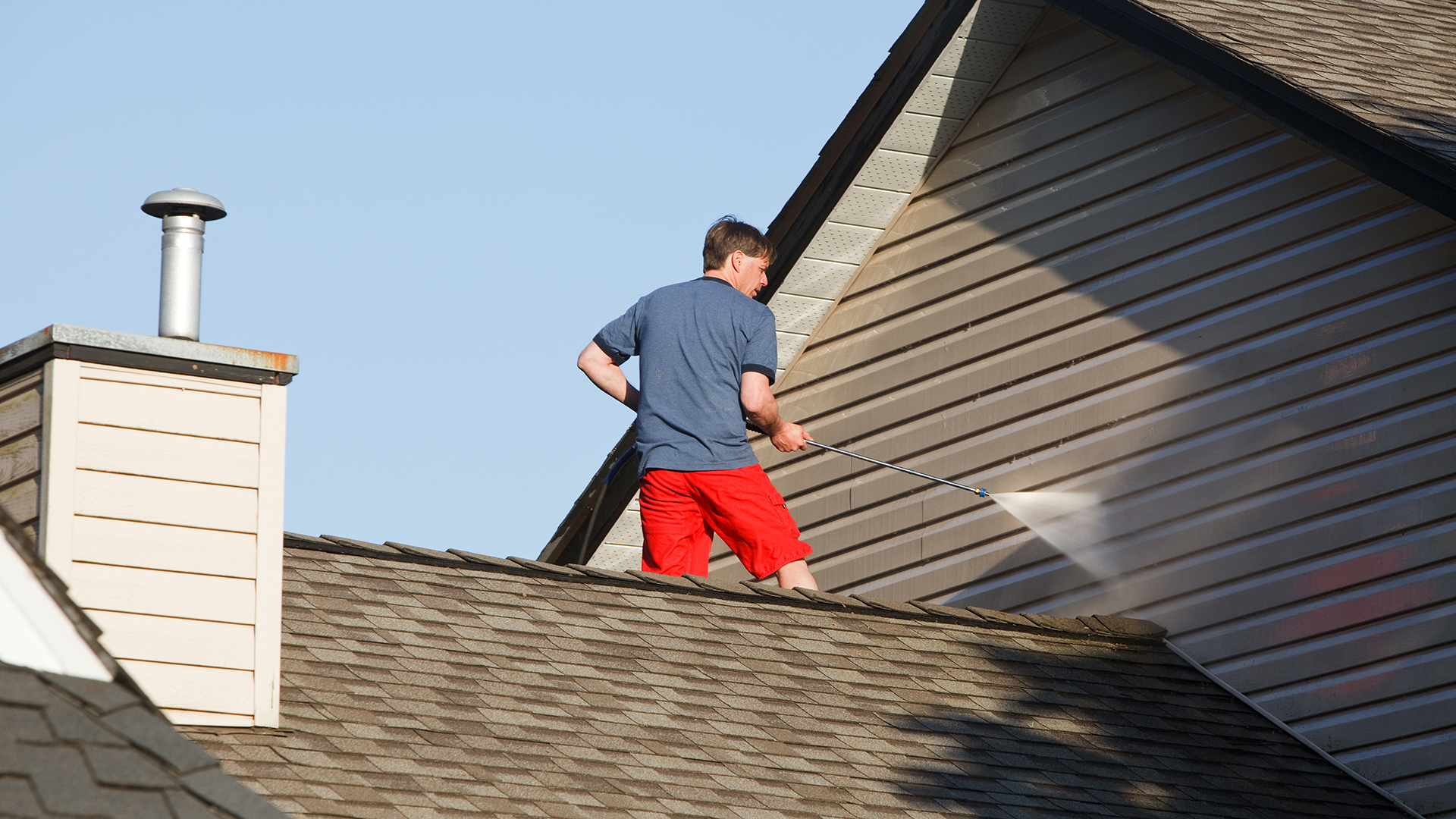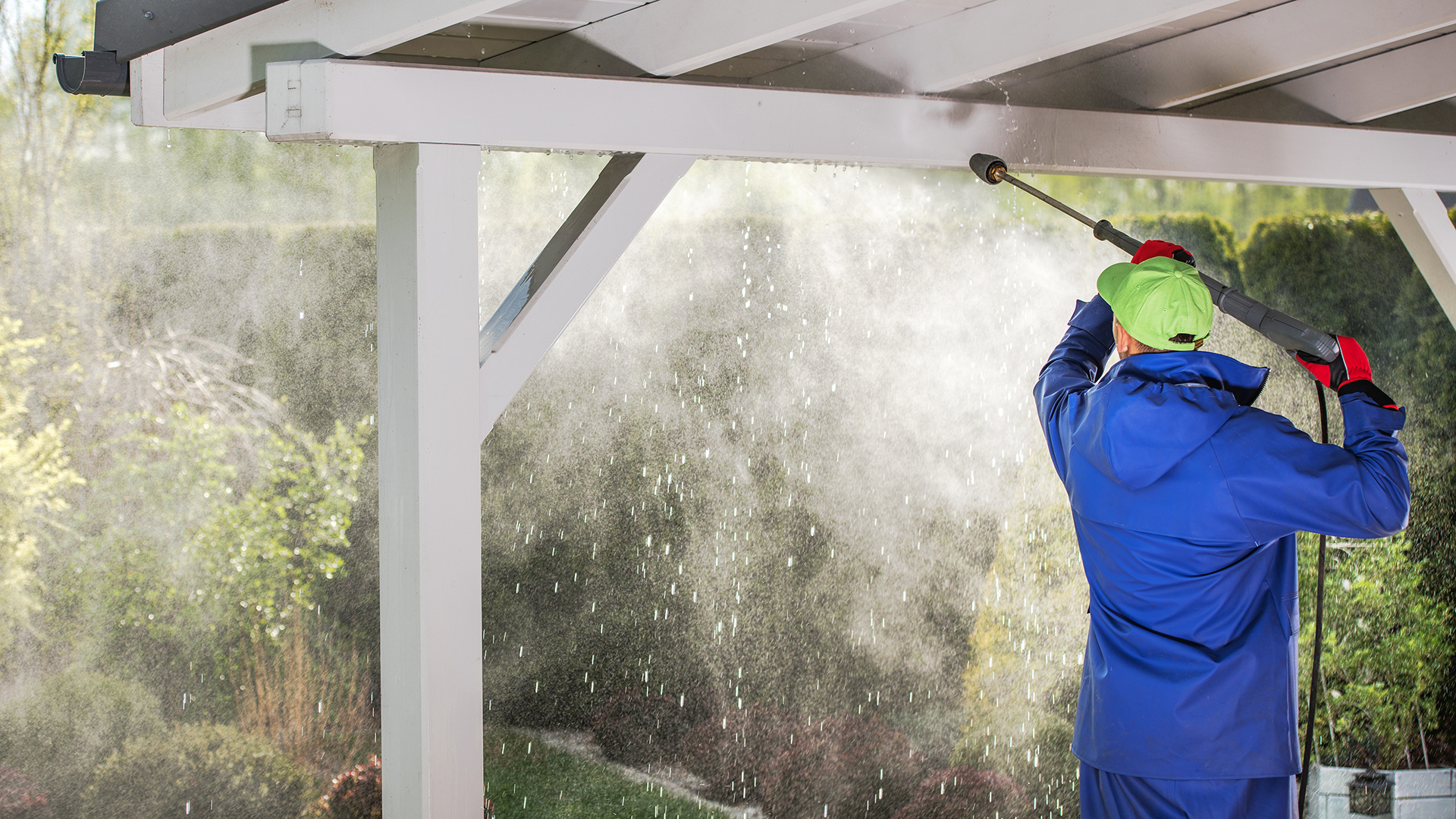At first glance, power washers and pressure washers look pretty similar. But if you’re weighing up a power washer vs pressure washer, there are some key differences you need to know about.
The most important difference is that a power washer uses hot water. Having a think about which jobs you need your washer to do, and what stains and debris you’re trying to remove, may help you swing one way or the other when it comes to purchasing.
Hot water is more effective at removing stubborn stains and materials, such as oil and grease. It can also make a job go quicker, as hot water breaks down dirt faster. However, a pressure washer can cope extremely well with most standard home maintenance jobs, so which to buy?
We’ve weighed up the pros and cons of each, and asked an expert for their opinion on when to choose a power washer over a pressure washer and vice versa. So you’ll have everything you need to know before making a decision.
And if you’ve decided a pressure washer is the right machine for your home maintenance jobs, then check out our buyer’s guide to the best pressure washers. With budget options, lightweight models, and a range of gas and electric machines, you’re certain to find one to suit you. Alternatively, check out the latest cheap pressure washer deals to find a great bargain on this useful tool.
What is a power washer?
When it comes to choosing between a power washer and a pressure washer, Jenkins advises going for the machine that’s more flexible. “A pressure washer is the best option for regular household use. These machines are less harsh on surfaces, so they are ideal for use on things like brick, concrete, and masonry.”
A power washer is seen as a more heavy-duty option in comparison to pressure washing. It uses a highly pressurized stream of hot water to blast away materials that are stuck to outdoor surfaces. It’s also effective at removing dirt, grease, mold, mildew, and salt, which most pressure washers can’t cope with.
Power washers have a boiler that heats the water in the reservoir before it is pumped out of the nozzle. The water can reach temperatures of up to 200 degrees Fahrenheit, making it an effective tool for cutting through oil and grease.

Power washers tend to be more expensive than pressure washers, because of the extra technology that goes into heating the water. While they usually have similar levels of power in terms of pressure, the hot water element is the game changer that makes power washers a go-to machine for cleaning oil and grease, and loosening and removing baked-on dirt. That’s why they’re often used in the automotive, manufacturing, and construction industries.
Because they’re such a heavy-duty option, power washers may be too powerful for softer surfaces around your home, such as wood.
What is a pressure washer?
A pressure washer uses only cold water to remove stains and debris, so you’re more reliant on the force of the water. A pressure washer can handle most household jobs, such as cleaning up patios, decking, fences, and cars. Combined with detergent, it can be very effective at cleaning away dirt, sand, and even paint.
You may be thinking, “Can’t I just put hot water into my pressure washer instead and get the best of both worlds?” The answer is no. Cold water pressure washers are not built to withstand the high temperatures of hot water, so you could do some serious damage to your pressure washer if you go down that road.
Power washer vs pressure washer

Fiona Jenkins is a landscaper with over 25 years of experience in the industry. As a gardening expert for MyJobQuote, one of the UK's top trade-matching sites, Fiona offers her expert advice to tradespeople and homeowners and has also been featured as a gardening expert for a range of reputable publications.
We spoke to our gardening expert, Fiona Jenkins, to get her take on what the key differences are between power washers and pressure washers, and which jobs each one is best suited to.
“Power washers and pressure washers are very similar. They use the same sorts of pressure levels as each other. The only difference really is that a power washer has a heating element which heats up the water before it is released.”
“The combination of high pressure and the higher water temperature in a power washer means that this is a better machine for removing very truly stuck materials from surfaces,” says Jenkins. “It's great for removing things like mold, mildew, and salt. The heat also makes it effective for removing gum, oil and grease stains and controlling moss and weeds.”
“Pressure washing does well at blasting away dirt and debris. However, without the added heat element, it doesn’t work as well at getting rid of stubborn things like mold, moss, or grease.”
If you do come across a stubborn stain, it may be useful to employ a detergent to use with your pressure washer. Check out our guide to using chemicals for pressure washing.
For any larger jobs, a power washer is your best option, says Jenkins. “The hot water usually makes the work go much faster as the heat helps loosen the dirt. You will need to be careful which surfaces you use a power washer on, though. It's best to just use a power washer on hard surfaces such as concrete, as the force of the hot water can cause damage to softer surfaces.”
Discover more guides for the garden…
Best chainsaws
Best leaf blowers
Best patio heaters
Best inflatable hot tubs

